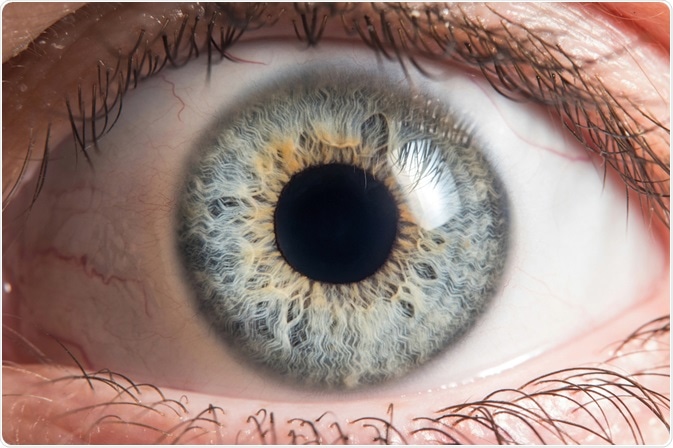The coralberry holds promise as a natural therapeutic adjuvant for combatting uveal melanoma (UM), the most aggressive variant of eye cancer.
 Image Credit: photoJS / Shutterstock.com
Image Credit: photoJS / Shutterstock.com
The berry produces a natural toxin, termed FR900359 – abbreviated FR – that doubles as an insecticide. The FR is able to work as an inhibitor of the oncogenic Gαq/11 signaling pathway in patients with uveal melanoma. This news comes from the Universities of Bonn and Magdeburg and Magdeburg, in collaboration with researchers from the USA.
The findings, published in Science Signaling, reveal that its ability to interfere with the G protein α subunits Gαq and Gα11 results in a successful blockade of the mitogenic ERK pathway. This pathway is one of a core of key signaling cassettes that converge on rapid cell division, also known as proliferation – which left sustained and uncontrolled, is a key hallmark of cancer development and progression.
Hitting the G proteins
Mutations in Gq proteins are key oncogenic drivers in the development of uveal melanoma. Gq proteins are downstream effectors of the G protein-coupled receptors (GPCRs).
The GPCRs are either the direct or indirect targets for more than a quarter of therapeutic drugs, and they detect extracellular stimuli, and through conformational changes in intracellular guanine nucleotide-binding proteins (G proteins), transmit the signal across membranes. These are comprised of α, β, and γ subunits, which modulate a series of receptors.
The Gq/11 subset is one such family of downstream receptors; activating further downstream signaling molecules perpetuates the signaling cascade to elicit several responses. Because the Gq/11 proteins are associated with tumorigenesis, they are potential therapeutic targets.
FR as a signaling pathway disruptor
FR900359, a cyclic depsipeptide obtained from the Ardisia crenata Sims plant, is capable of inhibiting the activity of both wild type Gαq, and those harboring activating mutations. FR achieves this by blocking nucleotide exchange, a necessary step for signal relay. Specifically, the oncogenic Gαq/11 proteins have a reduced intrinsic ability to hydrolyze guanosine triphosphate (GTP), which results in its accumulation.
The researchers discovered this effect by interrogating three different types of UM with FR. This caused the cells to revert from cancer cells to the wild-type melanocytes. Since the discovery by Dr. Jeffrey Benovic’s team at the Sidney Kimmel Cancer Center (SKCC), a more recent study reported that FR900359 predominantly blocks the ERK signaling pathway rather than the PLCβ pathway as suggested by Benovic’s team.
The study, headed by Annala et al., also demonstrated the efficacy of FR in reducing Gαq- driven uveal melanoma growth in mouse xenograft models. Altogether, these studies indicate that FR900359 and derivatives are a viable option for the treatment of uveal melanoma, driven by mutations in the Gq/11 proteins.
Despite the efficacy of FR900359, it has a drawback of affecting both activation-mutated and nonmutated Gα proteins; thus, there is a possibility of side-effects. As a result, research has also focussed on targeting ARF6, another necessary component of Gα protein signaling.
A promising hope for G protein targeting in the future
Until these studies, mutationally activated Gαq and Gα11 had not been targeted therapeutically, and previous downstream effector targeting had not been successful. In their proof-of-concept study, Annala et al. demonstrated the feasibility of direct targeting of Gαq/11.
A paper, published in the Journal of Chemical Information and Modeling, headed by Daniel Teitze at the Darmstadt University of Technology, Alarich-Weiss-Strasse has determined the water-derived FR conformation. This showed inhibition as delivered by conformational stability is of utmost importance for an effective G protein inhibition.
Despite this, Annala et al. noted that it is unclear whether specific targeting of mutationally activated Gq will be successful in the future – which suggests this avenue is one that will be explored in future research.
Sources
Tietze, D. et al. Structural and Dynamical Basis of G Protein Inhibition by YM-254890 and FR900359: An Inhibitor in Action. Journal of Chemical Information and Modeling. DOI: 10.1021/acs.jcim.9b00433. 2019.
Annala, S. et al. Direct targeting of Gαq and Gα11 oncoproteins in cancer cells. Science Signaling. DOI: 10.1126/scisignal.aau5948. 2019
Benovic, J. L. et al. Effects of oncogenic Gαq and Gα11 inhibition by FR900359 in uveal melanoma. Mol. Cancer Res. DOI: 10.1158/1541-7786.MCR-18-0574. 2018.
Further Reading
Last Updated: Jan 6, 2020